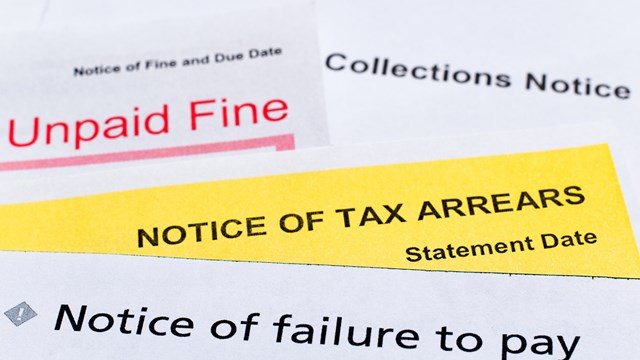Organizing and keeping a co-op or condo’s books and other records is, on the surface, not that different than keeping a budget for one’s home.
But there are many important differences—filing deadlines, tax requirements, reports, avoiding costly penalties and more. As difficult as balancing the numbers for your apartment may be, doing the same thing for, say, 60 or 100 housing units is infinitely more difficult. The fact that there are detailed rules and laws governing condo and co-op financial records makes it even more important to “take care of business,” as it were.
In Your Corner
While you don’t have to be an accountant or another financial professional to understand all of the basics, it’s a good idea to have a financial professional in your corner, giving you advice. That doesn’t mean, however, that boards and managers shouldn’t have a working knowledge of the basics themselves. With this in mind, we asked several certified public accountants how boards and managers can get their financial house in order and keep it that way.
“The board members should be familiar with and understand the association’s sources and uses of funds,” says Karen Sackstein, a CPA based in Fair Lawn. “They should be familiar with the managing agent’s reporting package. They should understand what areas of their development are common elements and therefore required to be maintained by the association.”
William Dietrich, a CPA in Millington, believes that board members of co-ops and condos should have a broad understanding of a building’s financials since it’s a collective concept.
“You’re taking responsibility for a lot of people, so you have to formalize what you’re doing a lot more in an operating budget and in a capital budget,” says Dietrich.
Jules Frankel, CPA, a shareholder in the accounting firm of Wilkin & Guttenplan, P.C., with offices in Manhattan and East Brunswick, adds that board members should have reports that allow them to compare the actual budget with the projected budget and make decisions based on this information. They should also know what major capital projects are coming up and be able to determine these projects’ major funding source.
“I had this new board member who said ‘I’m an attorney’ but he was completely clueless going through the financial statements,” says David Ferullo, a CPA with The Curchin Group in Red Bank. “Somebody on the board must have knowledge of the finances because what they might not understand is that they are responsible. The buck stops with them.”
Common Mistakes
While there are many mistakes that board members and/or managers can make when it comes to financial record-keeping, some mistakes are more common than others.
“The biggest mistake that we see is board members relinquishing all control to a managing agent without exercising proper oversight,” says Sackstein. “If a managing agent has signing rights for the operating account, it is imperative that the board members review the monthly check disbursements and bank statements.”
“Most bylaws require these board member administrators to have separate accounts. A separate checking account and a separate savings account,” says Ferullo “and what they do is, it is all collected as part of the monthly assessment or quarterly assessment and that money is generally deposited into one account, the operating account. And then, what they do is not physically move the money into the two respective accounts. And at the end of the year they’ve violated their public offering documents by not moving the cash into these two restricted accounts. I see that a lot.”
“Sometimes there will be a case where the property manager and the board at the board meetings don’t communicate,” says Dietrich. “Say a change in allocation of operating surplus to reserve, and get that down to the managing agent. It’s in the board minutes but they don’t communicate the board minutes and the intentions of the board to the financial manager. Then they will do an entry like a journal entry rather than just a cash entry. But that’s not necessarily a mistake, it’s an omission.”
That’s why many people recommend that the board itself have duplicate copies of all documents—tax returns going back at least seven years, payroll taxes, and more.
Key Deadlines
What are some of the key filing and/or payment deadlines affecting buildings in New Jersey?
Among them, according to our experts, are corporate tax returns, financial statements that many banks require, an annual real property income and expense report, real estate taxes, real estate tax protest dates, water and sewer charges, payroll tax returns, 1098 forms (a form filed with the Internal Revenue Service that details the amount of interest and mortgage-related expenses paid on a mortgage during the tax year) tax deductions to co-op shareholders and more.
“Federal income tax returns are due two-and-a-half months after the association’s fiscal year ends,” says Sackstein. “The IRS allows for a six-month extension.”
How do co-ops differ from condos when it comes to financial paperwork, filings, record keeping and disclosure? We already know the intrinsic difference between co-ops and condos: in a condo you actually own the unit from the walls in, whereas in a co-op you own the shares in an entity that owns and holds title to the land and building.
“Condominiums incorporated under New Jersey non-profit statutes are not required to file New Jersey income tax returns. Cooperative housing corporations are required to file a New Jersey return which is due three-and-a-half months after the corporation’s year end,” says Sackstein. “In addition, all New Jersey corporations are required to file an annual report online with the Division of Commercial Recording. The due date is based on the month in which the corporation was initially formed.”
Making Things More Efficient
How can condo and co-op administrators streamline their buildings’ financial profiles to make them simpler, more transparent, more efficient and less likely to result in missed deadlines, missing paperwork and penalties?
Ferullo advises managers to use industry-specific software specially designed for apartment management rather than generalized software, to issue their monthly reports on a timely basis and have the property manager review financial reports at the monthly meeting.
“It shouldn’t be done manually. If you have only one person that’s taking care of the financing and accounting, and that person moves, or gets tired of it because they are not being appreciated, you are in trouble.”
Sackstein, saying that “each agent is different,” outlines several steps for efficiency: A standard chart of accounts and attention to detail that will ensure that income and expenses are properly classified and presented, a regular schedule for compiling and generating monthly financial statements and regular cut-off dates for subsidiary ledger closings, bank reconciliations, preparation, review and issuance of the monthly reporting package for board members.
Frankel, who calls such efficiency measures “a function of the management company’s back-office and accounting department,” says that management should institute “appropriate ticklers” (reminders) to make sure that each one of the buildings are on time with tax filings, quarterly reports and other important deadlines.
He also says that management companies need to be aware of certain real estate rebates that come back to buildings, depending on the building’s age; of real estate incentive plans for newer buildings; and of laws to encourage development and reduce real estate taxes in some areas.
The information in this article is very minimal, but there are many resources that are available to interested co-op and condo boards and property management companies.
According to Sackstein, “They should consult with their independent auditors for tax advice, budgeting, internal controls, financing options and any other issues that may arise.”
The New Jersey chapter of the Community Associations Institute (CAI) provides information on everything from financial to management to running an association and also offers seminars throughout the year.
And, last but definitely not least, both management and boards should read The Cooperator!
Raanan Geberer is a freelance writer and a frequent contributor to The New Jersey Cooperator.







Leave a Comment